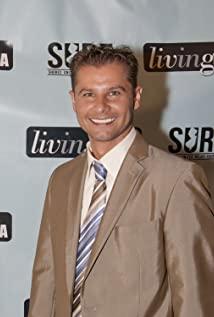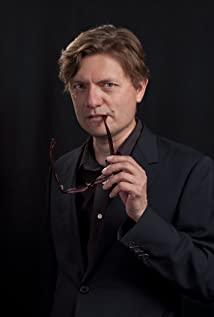1️⃣. Learned a few English vocabulary ① euthanasia planned death/ mercy killing ② No punishment without law. ③ We are here to prevent a suicide. We came to save your life. ④No one is above the law. 2️⃣.Theme This is a movie with the theme of law, ethics and human nature intertwined. The gray-haired Jack Kovakian is a member of the American state of Michigan. A controversial doctor, in his decades-long career, he has seen countless people suffering from illness, but unable to survive or die. Jack firmly believes that a doctor's job is not only to treat patients to the best of their ability, but to put himself in the patient's shoes and meet their needs, including their desire to die. So Jack tries to euthanize a patient who has lost hope in life. But his approach was unanimously opposed by the general public, who accused him of taking the lives of patients and gave him the nickname "Doctor of Death". During this process, only sister Marg and a few friends silently supported Jack's work. Faced with enormous pressure, Jack never flinched. He knew the pain of his patients, so he would not hesitate to help them get out of jail. Three of them went to jail, three went on hunger strike to fight the so-called unjust sentence, and the last time was so skinny that he kept saying "Because this is my name, when you think it's a bad law, you can't give in, you have to fight. ." This sentence to motivate myself. Jack ended up serving eight and a half years in prison and was released in 2007 at the age of 79. The U.S. Supreme Court declined to hear the case. 3️⃣. The court ruled, "You came here for a final fight, but you picked the wrong place. Our country can accommodate a hundred schools of thought because we resolve internal conflicts in a civilized, non-violent way. We have a set of methods and You can also criticize the law, denounce the law, complain to the media or petition voters, but you can never go beyond the boundaries of the law, you can't break the law, or play with the law On, no one will ignore, the heated debates and mood swings provoked by the end of life and pain control, I think this debate will continue in a calm and sensible way after this trial is over, and your actions have faded public memory, but this trial is not against this polemic, it is against you, sir. You have flouted and challenged the authority of the law and the Supreme Court, and moreover, you have disregarded your professional conduct, this trial against It's ignoring the law. You ignore the society that exists and thrives by the power of the law. No one is above the law. The law will punish you for publicly stating your intentions many times as a pretext for flouting the law, and for that reason this court has sentenced you to a maximum term of ten to twenty-five years." (Jack eventually served time in prison. After eight and a half years, he was released from prison in 2007. At the age of 79, the U.S. Supreme Court refused to hear the case.) 4️⃣. This reminds me of one of the six gentlemen of the 1980s, Tan Sitong, who dared to sacrifice himself for the sake of faith and justice in his heart in Guangxu in 1898 Twenty-four years later, the Western Queen Mother launched a coup. Cixi issued a series of decrees to arrest the reformers. Tan Sitong did not panic when he heard the news of the coup d'état, he put his own safety at risk, and made various activities to plan to rescue Emperor Guangxu. But by surprise, the plan fell through. Under such circumstances, he was determined to sacrifice his life for the cause of reform, and used his own sacrifice to resist the stubborn feudal forces for the last time. He said to those who persuaded him to leave: "All countries' reforms are made of blood. Today, China has never heard of bloodshed because of reforms. The reason why this country is not prosperous. If there is, please start with the same heir. As Lu Xun's "Self-titled" As written in "Little Image", Lingtai has no plan to escape from the gods and arrows, and the wind and rain are like a dark hometown. I send my heart to the cold star and don't detect it, I recommend Xuanyuan with my blood. 5️⃣. At the same time, as a law student, I also thought of the debate on the illegality of evil law and law. Behind the debate over whether "evil law is illegal" or "evil law is law" is the debate between the natural law school and legal positivism spanning centuries, which is almost the "Goldbach conjecture" in the fields of legal philosophy and jurisprudence, and The debate will continue for the foreseeable future. 1. The proposition "bad law is illegal" is to say: law and morality are inseparable, and the validity of law comes from good morality. If a law does not meet the requirements of good morality, then it is not law, that is to say, it has no legal effect. . 2. "Evil law is also law" The ultimate authority of legal positivism is itself. In the world of legal positivism, law is a self-referential meaning system. Not some higher being, but the law itself, with authority. The evil law originated from Socrates, and it is generally believed that the theory of evil law and law originated from Socrates, because Socrates interprets the evil law and the law in a generous elegy at the cost of his own practical behavior and life. The constant essence of the theory is that as long as the law is legal (in accordance with the procedure) established, no matter whether the law is good or bad, even if it is very evil, the parties must obey unconditionally. At that time, Socrates had three ways to avoid death, first, by exile before the trial; second, by confessing his guilt and saying some words of repentance to the accuser during the trial; escape. Socrates can continue to live as long as he chooses any of them. However, instead of choosing any of these three, Socrates chose death. In "Socrates' Confession", the dying sage said the last sentence: "The time to part is here, I will die, you will live, and who is better, only God knows." Actually, my opinion Evil law is also law. The "evil law" referred to here is a specific law in a certain era and a certain economic relationship, such as the feudal law in the feudal era, the Chinese legal system. Strict law, many yuba backward ideas, but after all, it belongs to the superstructure of the feudal economic foundation based on feudal private ownership of land, which is in line with the autocratic monarchy and feudal unified society at that time, and it is reasonable to be able to maintain a stable order in that society. of. We can't claim the past by today's standards, at best we can only use history as a mirror... The proposition "bad law is illegal" is to say: law and morality are inseparable, and the validity of law comes from good morality. If a law does not meet the requirements of good morality, then it is not law, that is to say, it has no legal effect. 2. "Evil law is also law" The ultimate authority of legal positivism is itself. In the world of legal positivism, law is a self-referential meaning system. Not some higher being, but the law itself, with authority. The evil law originated from Socrates, and it is generally believed that the theory of evil law and law originated from Socrates, because Socrates interprets the evil law and the law in a generous elegy at the cost of his own practical behavior and life. The constant essence of the theory is that as long as the law is legal (in accordance with the procedure) established, no matter whether the law is good or bad, even if it is very evil, the parties must obey unconditionally. At that time, Socrates had three ways to avoid death, first, by exile before the trial; second, by confessing his guilt and saying some words of repentance to the accuser during the trial; escape. Socrates can continue to live as long as he chooses any of them. However, instead of choosing any of these three, Socrates chose death. In "Socrates' Confession", the dying sage said the last sentence: "The time to part is here, I will die, you will live, and who is better, only God knows." Actually, my opinion Evil law is also law. The "evil law" referred to here is a specific law in a certain era and a certain economic relationship, such as the feudal law in the feudal era, the Chinese legal system. Strict laws, many yuba backward ideas, but after all, it belongs to the superstructure of the feudal economic foundation based on feudal private ownership of land, which is in line with the autocratic monarchy and feudal unified society at that time, and it is reasonable to be able to maintain a stable order in that society. of. We can't claim the past by today's standards, at best we can only use history as a mirror... The proposition "bad law is illegal" is to say: law and morality are inseparable, and the validity of law comes from good morality. If a law does not meet the requirements of good morality, then it is not law, that is to say, it has no legal effect. 2. "Evil law is also law" The ultimate authority of legal positivism is itself. In the world of legal positivism, law is a self-referential meaning system. Not some higher being, but the law itself, with authority. The evil law originated from Socrates, and it is generally believed that the theory of evil law and law originated from Socrates, because Socrates interprets the evil law and the law in a generous elegy at the cost of his own practical behavior and life. The constant essence of the theory is that as long as the law is legal (in accordance with the procedure) established, no matter whether the law is good or bad, even if it is very evil, the parties must obey unconditionally. At that time, Socrates had three ways to avoid death, first, by exile before the trial; second, by confessing his guilt and saying some words of repentance to the accuser during the trial; escape. Socrates can continue to live as long as he chooses any of them. However, instead of choosing any of these three, Socrates chose death. In "Socrates' Confession", the dying sage said the last sentence: "The time to part is here, I will die, you will live, and who is better, only God knows." Actually, my opinion Evil law is also law. The "evil law" referred to here is a specific law in a certain era and a certain economic relationship, such as the feudal law in the feudal era, the Chinese legal system. Strict law, many yuba backward ideas, but after all, it belongs to the superstructure of the feudal economic foundation based on feudal private ownership of land, which is in line with the autocratic monarchy and feudal unified society at that time, and it is reasonable to be able to maintain a stable order in that society. of. We can't claim the past by today's standards, at best we can only use history as a mirror... Even if it is very evil, the parties are subject to unconditional obedience. At that time, Socrates had three ways to avoid death, first, by exile before the trial; second, by confessing his guilt and saying some words of repentance to the accuser during the trial; escape. Socrates can continue to live as long as he chooses any of them. However, instead of choosing any of these three, Socrates chose death. In "Socrates' Confession", the dying sage said the last sentence: "The time to part is here, I will die, you will live, and who is better, only God knows." Actually, my opinion Evil law is also law. The "evil law" referred to here is a specific law in a certain era and a certain economic relationship, such as the feudal law in the feudal era, the Chinese legal system. Strict law, many yuba backward ideas, but after all, it belongs to the superstructure of the feudal economic foundation based on feudal private ownership of land, which is in line with the autocratic monarchy and feudal unified society at that time, and it is reasonable to be able to maintain a stable order in that society. of. We can't claim the past by today's standards, at best we can only use history as a mirror... Even if it is very evil, the parties are subject to unconditional obedience. At that time, Socrates had three ways to avoid death, first, by exile before the trial; second, by confessing his guilt and saying some words of repentance to the accuser during the trial; escape. Socrates can continue to live as long as he chooses any of them. However, instead of choosing any of these three, Socrates chose death. In "Socrates' Confession", the dying sage said the last sentence: "The time to part is here, I will die, you will live, and who is better, only God knows." Actually, my opinion Evil law is also law. The "evil law" referred to here is a specific law in a certain era and a certain economic relationship, such as the feudal law in the feudal era, the Chinese legal system. Strict law, many yuba backward ideas, but after all, it belongs to the superstructure of the feudal economic foundation based on feudal private ownership of land, which is in line with the autocratic monarchy and feudal unified society at that time, and it is reasonable to be able to maintain a stable order in that society. of. We can't claim the past by today's standards, at best we can only use history as a mirror...
View more about You Don't Know Jack reviews











